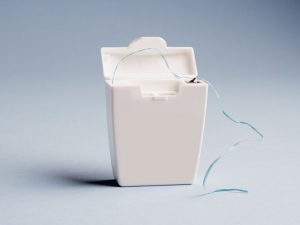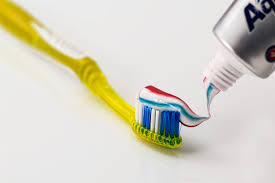The Right Tools for Home Dental Care
No matter how skilled a worker is, he or she can’t do a job properly without the proper tools. Similarly, you can’t perform an adequate, effective daily oral care routine without the proper tools. These, then, are the things that belong in your home dental care toolkit.
Home Dental Care: The Toothbrush
We at Comfort Care Family Dental certainly hope you have and use a toothbrush! But is it the right toothbrush?
Unless your dentist specifically advises otherwise, soft bristles are best. They’re less likely to wear away tooth enamel. A small head can make it easier to brush all tooth surfaces, as you should.
Toothbrushes are made with a variety of handles. What’s important here is that the toothbrush be comfortable in your hand.
Electric toothbrushes are an attractive if more expensive option for many, especially people who have trouble brushing due to manual dexterity problems or some other issue. They do a good of cleaning, and if you don’t stop brushing until the toothbrush switches itself off, you’ll get a proper two minutes of brushing in.
Whatever kind of toothbrush you choose, it will need replacing when the bristles wear out. You should replace it when you can see wear or after three months, whichever comes first. If you use an electric toothbrush, replace the head.
You should also replace a toothbrush after you’ve had a cold. There’s a good chance there are germs on the bristles that could infect you all over again.
Home Dental Care: Toothpaste
Your toothpaste should contain fluoride because fluoride fights cavities. Many toothpastes do, but not all of them. Some natural toothpastes don’t.
A toothpaste should be approved by the American Dental Association. The ADA applies rigorous standards to ensure a toothpaste will serve you well as you undertake home dental care.
Read the label to know what you’re getting. If a toothpaste contains a lot of sugar, it can actually contribute to the development of cavities. Natural toothpastes may contain ingredients that, like certain herbal supplements, have not been evaluated for safety. Some toothpastes aren’t recommended for children.
Be aware that not all mouths are the same, and therefore that even if a toothpaste is safe and effective for many people, it might not be right for your home dental care. Whitening toothpastes can irritate sensitive teeth, or you could be allergic to a particular ingredient in a particular toothpaste.

Home Dental Care: Floss
Though some of us don’t like doing it, flossing is important just like brushing. Brushing gets rid of 60% of the plaque coating your teeth. Flossing gets rid of the other 40%.
Floss is often made of either nylon or Teflon. Both work equally well, so go with whichever you find comfortable. If your teeth are close together, and floss tends to stick or break in them, try waxed floss or thin floss. Thin floss is sometimes made of Gore-Tex.
People with braces or bridges can benefit from using a floss threader. It allows them to reach under restoration and wires. A product called Super-Floss works, too.
Some people try substituting a water pick for flossing, but this isn’t recommended. Though a water pick can help with reducing bacteria, it won’t get rid of film and plaque.
Home Dental Care: Mouthwash
There are two types of mouthwash, cosmetic and therapeutic. Cosmetic mouthwashes freshen breath temporarily but make no actual contribution to oral health. Therapeutic mouthwashes, on the other hand, have active ingredients intended to combat the causes of bad breath, plaque, tooth decay, and gingivitis. These ingredients may include fluoride, peroxide, essential oils, chlorhexidine, and cetylpyridinium chloride. Like a safe, effective toothpaste, a safe, effective therapeutic mouthwash will carry the ADA Seal of Acceptance.
Last but not least, please be aware that no matter how well stock your home dental care toolkit is, and no matter how faithfully you use it, you still need regular dental cleanings and checkups. The cleanings remove plaque you may have missed and gum disease-causing tartar that plaque eventually turns into, and checkups catch developing problems early, when treatment is easier and generally less expensive.
If it’s time for you to see a dentist and you’re in the Naperville, IL area, we invite you to call us at Comfort Care Family Dental at (630) 369-0111 for an appointment.


